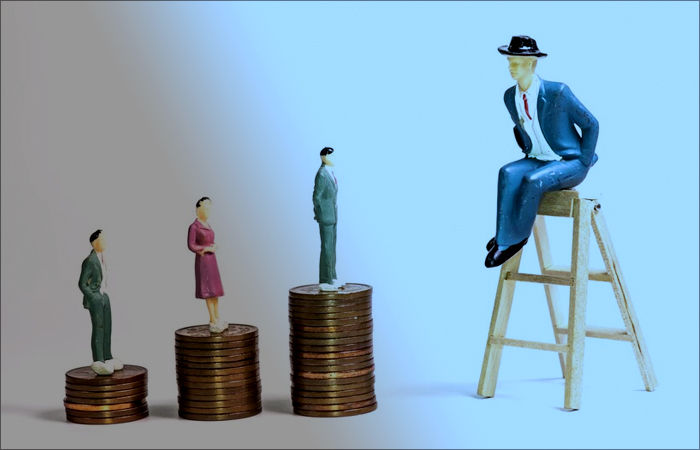
Growing economic inequality across the world is worrying: The wealth of the world's richest 1 percent billionaires has increased by $42 trillion in the past decade. Growing economic inequality around the world has become a matter of concern.
Economic inequality has been prevalent in human society for centuries. A section of the society of any country which is rich becomes richer and the poor are pushed into the depths of poverty. This was the situation during the times of kings and princes and the situation is the same in today's modern times. In this context, Oxfam, a global organization fighting for human rights, has recently published a report in which it is written that in the last decade, the richest 1 percent of the world has earned 42 trillion dollars. This figure is about 36 times more than the wealth accumulated by the poor. In the report, the organization wrote, 'Billionaires around the world pay less than 0.5 percent tax on their wealth. G20 countries should come forward and impose more taxes on their rich to remove the growing economic inequality in the world.'
What is Oxfam? What is its aim?
The name 'Oxfam' comes from the 'Oxford Committee for Famine Relief'. Founded in Britain in 1942, Oxfam is a federation of 21 independent non-governmental organizations (NGOs). This human rights organization aims to eradicate global poverty, hunger and economic inequality. It has branches in countries around the world.
What did Oxfam demand?
Oxfam has demanded that the world's leading countries should pass a resolution to eliminate economic inequality and impose an annual net wealth tax of at least 8% on billionaires at the next G20 summit to be held in Rio de Janeiro, Brazil. Oxfam says that the money spent by billionaires is often wasted in order to develop the country's infrastructure and raise the living standards of the poor. This is not a Robin Hood proposal of taking wealth from the rich and distributing it among the poor. It is a matter of systematically using the money obtained through net wealth tax for national upliftment. Oxfam has described the growing economic inequality between the rich and the poor as 'obscene'.
Which countries are supported? What are the contraindications?
It is true that while on one hand the rich have so much wealth that they will not be harmed even if they are robbed, on the other hand the majority of the world's population has enough money to eat. That is why the recommendation of special taxes on the super-rich continues. This proposal is not new; such a demand has been raised before. Some countries are ready for it, some are not. France, Spain, South Africa, Colombia and the African Union are in favour of such a tax, while the US is strongly opposed to it. India has not clarified its stand. It may be that governments in democracies like the US and India cannot afford to impose additional taxes on the super-rich, because they get a huge amount of money from billionaires to maintain and run the government.
It is worth mentioning here that the 'Group of Twenty' (G20) countries include Argentina, Australia, Brazil, Canada, China, France, Germany, India, Indonesia, Italy, Japan, South Korea, Mexico, Russia, Saudi Arabia, South Africa, Turkey, UK, while America includes 19 countries and countries of the European Union. G20 member countries contribute about 85% to global GDP and 75% to global trade.
 look news india
look news india